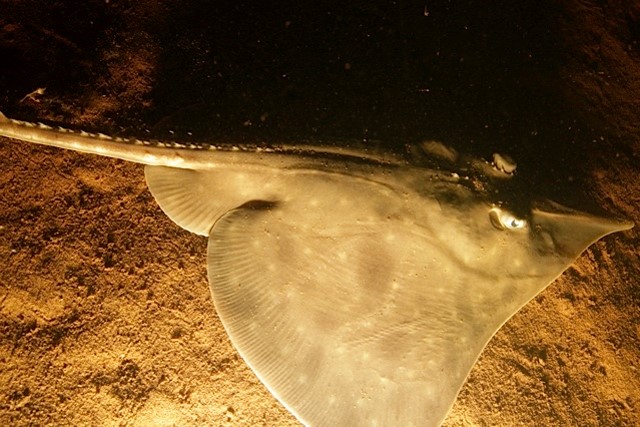SMRCA, FRDC, EPA, DPIPWE, Tassal, Petuna, Huon Aquaculture, WWF
The Maugean skate (Zearaja maugeana) is only known from Macquarie and Bathurst Harbours (western Tasmania), suggesting that the species has one of most restricted distributions of any elasmobranch. As a result the species has been listed as endangered.
The main population is in Macquarie Harbour where the physio-chemical conditions have changed markedly since European settlement. There has been a general decline in dissolved oxygen (DO) levels since 2009 that occurred at the same time as a rapid expansion of marine farming operations in the area. These environmental changes are likely to have had a significant impact on many resident species, including the Maugean Skate.  Given the species poor ability to cope with low DO, any reductions in bottom DO concentrations are expected to directly influence the distribution of the skate, highlighting the need to better understand the oxygen demands of the species. Current generation acoustic tags capable of measuring DO and activity in the field, which when combined with laboratory studies, represent methods to examine tolerance and responses to varying levels of DO.
Given the species poor ability to cope with low DO, any reductions in bottom DO concentrations are expected to directly influence the distribution of the skate, highlighting the need to better understand the oxygen demands of the species. Current generation acoustic tags capable of measuring DO and activity in the field, which when combined with laboratory studies, represent methods to examine tolerance and responses to varying levels of DO.
Declining bottom DO also has implications for the development and survival of skate eggs. Limited information suggests that eggs are deposited at depths of > 20 m where they are likely to be increasingly exposed to low DO concentrations. An understanding of the relationships between environmental conditions and the development and survival of embryos, coupled with the depths in which eggs are deposited, has particular relevance to assessing the implications of changing environmental conditions on future recruitment and productivity of the Maugean Skate population.
Interested in this project?